Rider Education, Injuries And Fatalities - Motorcycle.com
Rider Education, Injuries And Fatalities
Whether you have decades of experience or are a newbie, it pays to realistically size up this activity called “riding a motorcycle,” and to look at yourself as a lifelong learner.
There are approximately 2,500 skills required to ride a motorcycle. If you have not been riding for a while, it’s important to ease into it – reacquainting yourself with your bike, the road, traffic, and how they all work together.
And even if you have been riding lately, no one is ever so good that they can never make a mistake, especially with conditions as they are today.
You need to be aware of a 360 degree area and continually size up other vehicles, other risks, stay focused, be smart – and then you can learn to relax some too, and have fun on your bike without becoming a statistic.
Allstate Insurance On Rider Safety
Our friends at Allstate Motorcycle Insurance know a thing or two about motorcycle safety. In addition to Motorcycle.com‘s safety series, Allstate Motorcycle Insurance has its own valuable safety information to share.
* Motorcycle Awareness: Safety Tips from Allstate Motorcycle Insurance
* Rider Safety: Staying Alert on Familiar Routes
* Rider Training: Be Prepared and Carry These Essentials
American motorcycle and scooter riders must now mix it up with more drivers on the road than ever. And too often these motorists are busy, distracted, and typically driving bigger, heavier cars.
And do you know what? To the average driver, you on your motorcycle or scooter may be “invisible.” Forty to 75 percent of all motorcycle crashes involve a motorist turning left in front of the rider. They may tell the police afterward, “I never saw him.”
According to the Motorcycle Safety Foundation’s director of special projects, Ken Glaser, you should wear light-colored clothes made for safety, a light-colored helmet, and even then, pretend they still don’t see you.
“Drivers only see what they expect to see, Glaser said. “If they expect to see only a car, or an SUV or a truck, they will literally look right past the motorcycle.”
While you deserve to be respected, and you have rights, never take them for granted. It’s not personal; unfortunately, it’s a reality of the road for riders.
Accepting these and other facts is part of the game. Good riders who avoid trouble never forget that ultimately the one most responsible for keeping you upright and on your way is you!
Be proactive: When you ride you should use your mirrors and even then visually check before changing lanes.
You need to be aware of a 360 degree area and continually size up other vehicles, other risks, stay focused, be smart – and then you can learn to relax some too, and have fun on your bike without becoming a statistic.
Since a low point in 1997, for the last 10 years, the American motorcycle safety record has been getting worse even when factored for increased registrations.
Per vehicle miles traveled in 2006, motorcyclists were about 35 times more likely than passenger car occupants to die in a traffic crash, and eight times more likely to be injured.
Do you have a valid motorcycle license?
In 2007, one out of four (26 percent) of riders in fatal crashes were riding with an invalid license.
Do you ever ride to the bar?
Forty-one percent of riders who died in single-vehicle crashes in 2007 had blood alcohol levels of .08 grams/deciliter or higher (they were legally drunk).
How well do you know your bike? If it is new, it takes time and miles to get really comfortable with it. Do you regularly inspect your tires and your bike’s condition? Do you know how?
Realize that you only have two tires with tiny contact patches, and the skills needed to safely operate a motorcycle are not automatically inherited from any automobile experience you may have.
In fact, the MSF says any experience you might have from riding a bicycle or dirt bike is more valuable than automotive experience when it comes to handling a road motorcycle or scooter.
“What we tell people is a motorcycle is more a skill of the eyes and minds than the hands and the feet,” Glaser said.
Whether your bike is lightweight, or big and powerful, how well can you handle it? How well can you corner? How well would you do if you got caught in the rain? How good are you with the brakes? What would you do in a panic situation?
While everyone knows how to make a bike go, it is more important to be an expert at making the bike stop.
At least 70 percent of your braking is done with the front brake. Under severe conditions, this can be over 90 percent. Using the front and rear brakes together to near the point of lock-up is a skill every rider needs to know.
No matter how experienced you are, the best riders take time out to practice skills as needed – preferably in a secluded area like a parking lot.
Learning to corner and brake on different pavement types separates the shaky rider from the smoother, safer rider.
If you want someone to coach you – highly recommended – look into a rider safety course. For info, you can contact the MSF at 800-446-9227 or http://www.msf-usa.org/. Or, for other courses, try a Web search with keywords: “motorcycle rider training” plus the name of your area.
Related Reading
How Well Do You Know Your Motorcycle?
Knowing How to Brake Saves the Most Lives
What to Wear When You Ride – and Why
The SEE System: Increasing Your Visibility
Motorcycle Insurance Basics
Choose a Motorcycle That Fits
The American Culture of Motorcycle Safety
Group Riding 101
Should You Ride a Motorcycle?
How to Load Your Motorcycle
Night Riding
Riding With a Passenger
Riding in the Rain and Wind
The Truth about Drinking and Riding
Road Conditions Quiz
More by Jeff Cobb







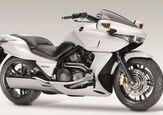
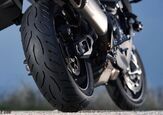
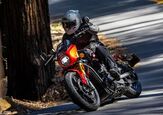
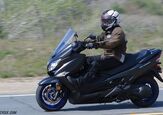

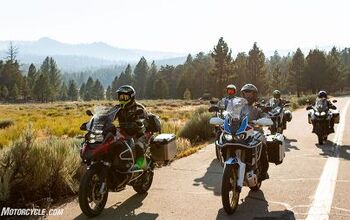
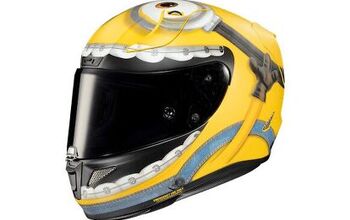

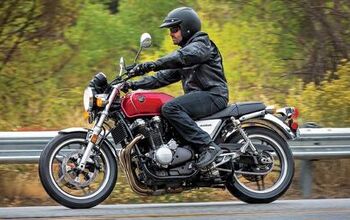
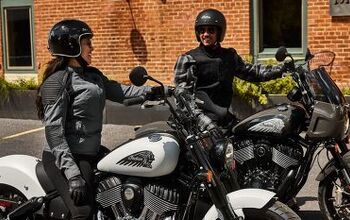


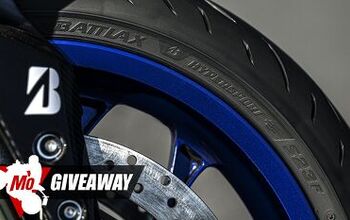



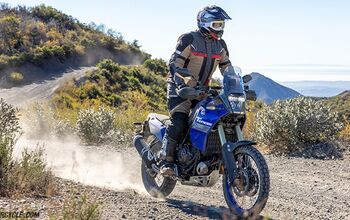






Comments
Join the conversation